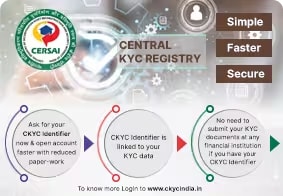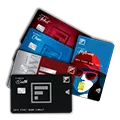Enjoy Zero Charges on All Commonly Used Savings Account Services
- About Us
- MD & CEO letter about the bank
- MD & CEO
- Our History
- Letter to Shareholders on the 1st Annual Report after Merger
- Letter to Shareholders on the 2nd Annual Report after Merger
- Letter to Shareholders on the 3rd Annual Report after Merger
- Letter to Shareholders on the 4th Annual Report after Merger
- Board of Directors
- Awards & Accolades
- News Room
- Investors
- Careers
- ESG
-
Customer care hotlineCall 1800 10 888
-
As per amendment in the Income Tax Rules, PAN or Aadhaar are to be mandatorily quoted for cash deposit or withdrawal aggregating to Rupees twenty lakhs or more in a FY. Please update your PAN or Aadhaar. Kindly reach out to the Bank’s contact center on 1800 10 888 or visit the nearest IDFC FIRST Bank branch for further queries.
-
-
FinFIRST Blogs
Looking to buy your dream house? Here’s what can you do if your home loan is not enough
Buying a home is a huge expense for most people, which is why most buyers turn to home loans to finance their dream houses. On occasion, however, homebuyers may not be eligible for loans that cover the entire purchase price of their desired house. Some buyers might compromise and find something within their budget, while others are hesitant to give up on their dream house. A house, after all, is integral to one's daily life. It is the asset that we perhaps interact with more than any other.
What then can a buyer do if they don't want to compromise? Luckily, there are several other financing options they can fall back upon:
1. Gold loan
Most Indian households have at least a portion of their savings held in the form of gold, either as jewelry or simply gold coins. Many banks and financial institutions will willingly lend money with gold as the collateral, a type of borrowing commonly called a gold loan. Gold loans usually carry a lower interest rate than personal loans, and borrowers may be able to get as much as 80% of the value of the gold they are willing to put up as collateral.
READ MORE
2. Personal loan
A personal loan is one of the most common types of loan disbursed by banks based on the borrower's creditworthiness. A personal loan can be given without any collateral requirement, and the bank does not restrict its use case. Personal loans do not require any elaborate paperwork – in fact, the personal loan application at IDFC FIRST Bank is entirely paperless and such loans are disbursed quickly. They also feature flexibility in terms of tenure and early repayment. However, personal loans often come with slightly higher interest rates – though IDFC FIRST Bank personal loans feature interest rates as low as 10.49% per annum – and their no-collateral structure necessitates stricter eligibility requirements.
3. Loan against PPF
Individuals can also borrow money against their Public Provident Fund (PPF) investment. Funds invested in a PPF account for more than three years can be collateralized for borrowing money. The interest rate on such loans is usually slightly higher than the rate of interest offered on the PPF investment. Still, they can nevertheless serve as a valuable source of bridge financing.
At IDFC FIRST Bank, we offer competitive interest rates on all our loans, alongside a fully digital and paperless application process. Borrowers can track their loan repayment status on our app or website and always access our excellent customer service staff.
4. Loan against securities
Some investments in securities such as shares and mutual funds can also be collateralized to avail a bank loan. Every bank will have a list of mutual funds or companies whose shares they will accept as collateral to lend money against. While loans against securities often come with higher rates of interest, the borrower should still check their eligibility with their chosen bank.
5. Loan against fixed deposit
Much like PPF accounts and securities, fixed deposits can also be used as collateral to borrow from a bank. The bank will charge an interest rate slightly higher than the rate they offer on fixed deposits but will disburse amounts equal to 80% of the fixed deposit value. The only real downside to a loan against a fixed deposit is that it has to be paid back before the fixed deposit matures, thereby limiting the flexibility of its tenure.
6. Bridge loan
Sometimes, home buyers sell a property and use those sale proceeds to buy a new house. However, the property market is not very efficient, and there might be an overlap between the sale of their current property and the purchase of a new one. In such a case, they might only need a temporary loan to cover the down payment on their new property; the rest can be paid for with the sales proceeds. This temporary loan is called a bridge loan. Bridge loans can be expensive from an interest perspective but are easy to get and typically have short tenures.
Last words
Prospective home buyers have a variety of financing options to help them buy their dream home. Before choosing their source of top-up financing, they need to do their due diligence, compare various offerings, and decide which one suits them best in terms of interest rate, tenure, repayment flexibility, and disbursed amount. As a general rule of thumb, loans with collateral are cheaper than loans without; of the former, those tied to collateral that is stable in value are cheaper still. For minimum hassle, a personal loan can also be a great choice.
At IDFC FIRST Bank, we offer competitive interest rates on all our loans, alongside a fully digital and paperless application process. Borrowers can track their loan repayment status on our app or website and always access our excellent customer service staff. To know more about various loan options offered by IDFC FIRST Bank, click here.
Disclaimer
The contents of this article/infographic/picture/video are meant solely for information purposes. The contents are generic in nature and for informational purposes only. It is not a substitute for specific advice in your own circumstances. The information is subject to updation, completion, revision, verification and amendment and the same may change materially. The information is not intended for distribution or use by any person in any jurisdiction where such distribution or use would be contrary to law or regulation or would subject IDFC FIRST Bank or its affiliates to any licensing or registration requirements. IDFC FIRST Bank shall not be responsible for any direct/indirect loss or liability incurred by the reader for taking any financial decisions based on the contents and information mentioned. Please consult your financial advisor before making any financial decision.
The features, benefits and offers mentioned in the article are applicable as on the day of publication of this blog and is subject to change without notice. The contents herein are also subject to other product specific terms and conditions and any third party terms and conditions, as applicable. Please refer our website www.idfcfirstbank.com for latest updates.


 What's special about us
What's special about us




















